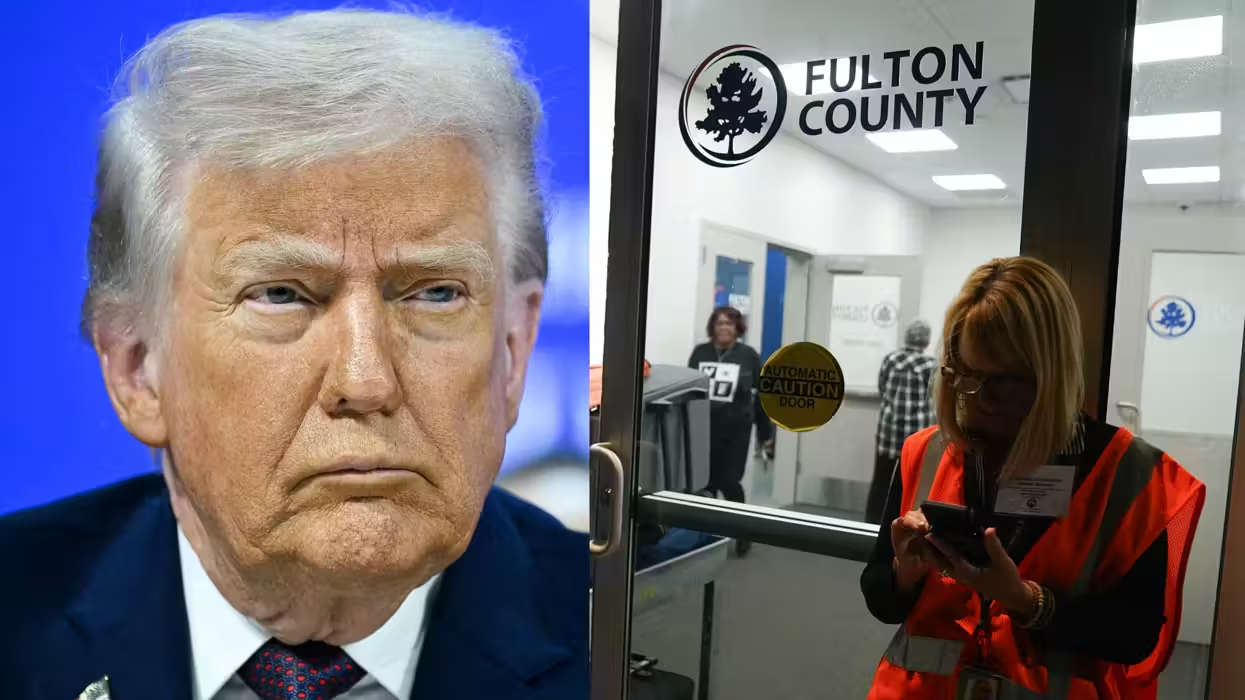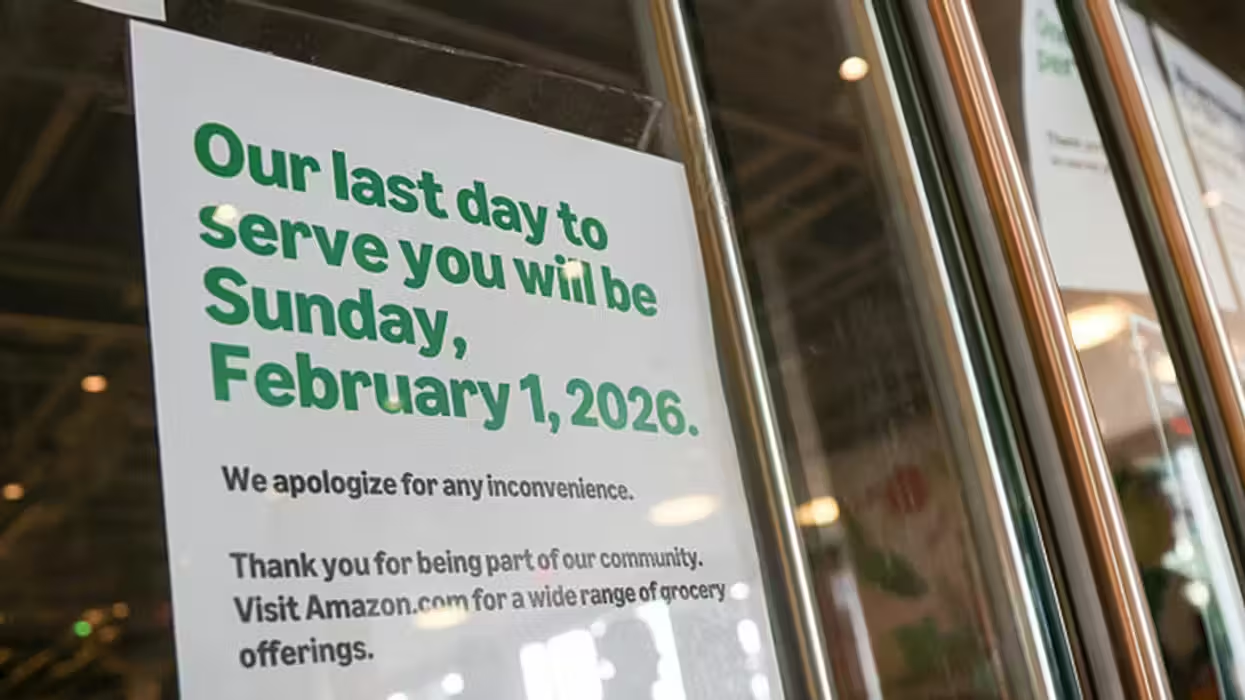
© 2026 Blaze Media LLC. All rights reserved.
Climategate Part II? New Leaked Emails Again Point to Global Warming Activism
November 22, 2011
"the great man-made global warming scare is not about science but about political activism"
What's infamously known as Climategate began in late 2009 when emails of prominent climate scientists were leaked to the public, revealing exaggerations made about man-made global warming. While the scientists claimed that the content of the emails were taken out of context, the scandal marred many's opinions of global warming science, confirmed suspicions of others and lead to distrust.
Now, as The Telegraph blogger James Delingpole reports, a case of deja vu is happening as a second round of emails has been leaked, featuring some of the same scientists including Michael Mann, Phil Jones, Ben Santer, Tom Wigley, Kevin Trenberth and Keith Briffa. The British university whose leaked emails caused a global climate science controversy in 2009 says it has discovered a potentially much larger data breach and confirms that the emails are real but they are old. Scientists involved are again saying that they are being taken out of context.
The Telegraph has more:
[...] what these emails confirm is that the great man-made global warming scare is not about science but about political activism. This, it seems, is what motivated the whistleblower 'FOIA 2011' (or "thief", as the usual suspects at RealClimate will no doubt prefer to tar him or her) to go public.
FOIA 2011, whomever that is, says he has more than 220,000 emails and here are just a few choice ones pulled together by The Telegraph:
Here is a gloriously revealing string of emails in which activists and global warming research groups discuss how best to manipulate reality so that climate change looks more scary and dangerous than it really is:<3655> Singer/WWF:
we as an NGO working on climate policy need such a document pretty soon for the public and for informed decision makers in order to get a) a debate started and b) in order to get into the media the context between climate extremes/desasters/costs and finally the link between weather extremes and energy
<0445> Torok/CSIRO:
[...] idea of looking at the implications of climate change for what he termed “global icons” [...] One of these suggested icons was the Great Barrier Reef [...] It also became apparent that there was always a local “reason” for the destruction – cyclones, starfish, fertilizers [...] A perception of an “unchanging” environment leads people to generate local explanations for coral loss based on transient phenomena, while not acknowledging the possibility of systematic damage from long-term climatic/environmental change [...] Such a project could do a lot to raise awareness of threats to the reef from climate change
<4141> Minns/Tyndall Centre:
In my experience, global warming freezing is already a bit of a public relations problem with the media
Kjellen:
I agree with Nick that climate change might be a better labelling than global warming
Pierrehumbert:
What kind of circulation change could lock Europe into deadly summer heat waves like that of last summer? That’s the sort of thing we need to think about.
Here is what looks like an outrageous case of government – the Department for Environment, Food and Rural Affairs – actually putting pressure on climate "scientists" to talk up their message of doom and gloom in order to help the government justify its swingeing climate policies:<2495> Humphrey/DEFRA:
I can’t overstate the HUGE amount of political interest in the project as a message that the Government can give on climate change to help them tell their story. They want the story to be a very strong one and don’t want to be made
to look foolish.
New Scientist reports Mann as calling this new batch of exposed emails "truly pathetic:"
Regarding the content of the emails, he said: "I hardly see anything damning at all, despite these snippets all being taken out of context. I guess they had very little left to work with, having culled, in the first round, the emails that could most easily be taken out of context to try to make me look bad."
The Guardian reports Mann as saying he thinks those with interests in the fossil fuel industry are behind the second release of these emails:
He said, the people behind the release were "agents doing the dirty bidding of the fossil fuel industry know they can't contest the fundamental science of human-caused climate change. So they have instead turned to smear, innuendo, criminal hacking of websites, and leaking out-of-context snippets of personal emails in their effort to try to confuse the public about the science and thereby forestall any action to combat this critical threat. Its right out of the tried-and-true playbook of climate change denial."
Here are some opinions surrounding this second round of emails from the Twittersphere:
University of East Anglia spokesman Simon Dunford said that while academics didn't have the chance yet to examine the roughly 5,000 emails apparently dumped into the public domain Tuesday, a small sample examined by the university "appears to be genuine."
The university said in a statement that the emails did not appear to be the result of a new hack or leak. Instead, the statement said that the emails appeared to have been stolen two years ago and held back until now "to cause maximum disruption" to the imminent U.N. climate talks next week in Durban, South Africa.
If that is confirmed, the timing and nature of the leak would follow the pattern set by the so-called "Climategate" emails, which caught prominent scientists stonewalling critics and discussing ways to keep opponents' research out of peer-reviewed journals.
Although several reviews have since vindicated the researchers' science, some of their practices -- in particular efforts to hide data from critics -- have come under strong criticism.
Mann goes on to compare the leak as "an attempt to dig out 2-year-old turkey from Thanksgiving '09. That's how desperate climate change deniers have become."
You can take a look at all of FOIA 2011's releases here. FOIA 2011 wrote in the release of the emails that the thousands of others are encrypted for now with no intent to release them publicly yet.
The Associated Press contributed to this report.
Want to leave a tip?
We answer to you. Help keep our content free of advertisers and big tech censorship by leaving a tip today.
Want to join the conversation?
Already a subscriber?
more stories
Sign up for the Blaze newsletter
By signing up, you agree to our Privacy Policy and Terms of Use, and agree to receive content that may sometimes include advertisements. You may opt out at any time.
Related Content
© 2026 Blaze Media LLC. All rights reserved.
Get the stories that matter most delivered directly to your inbox.
By signing up, you agree to our Privacy Policy and Terms of Use, and agree to receive content that may sometimes include advertisements. You may opt out at any time.







